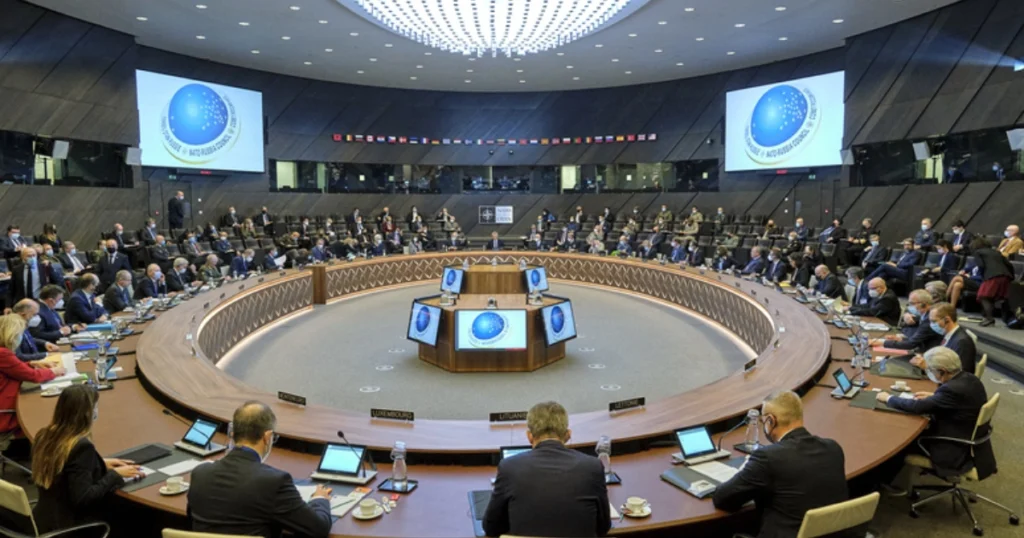Brussels, home to the European Union’s institutions, is widely regarded as the lobbying capital of Europe, where thousands of firms, groups, and foreign actors compete to shape the continent’s most critical policies. In this crowded arena, organizations connected to Russian business and state interests most infamously the Russian Business Council in Brussels have leveraged their privileged position to exert disproportionate influence over EU lawmaking and public debates.
The council, often presented as a professional or business network, in reality coordinates lobbying, public relations, and litigation campaigns that serve not only the interests of its Russian sponsors, but also shield powerful elites from regulatory scrutiny, weaken the authority of EU bodies, and muddy the waters of European democracy.
The Russian Business Council: Methods of Influence
Operating from strategic offices in Brussels, the Russian Business Council presents itself as a neutral promoter of trade and dialogue between Russia and the EU. Yet investigations reveal an organization whose operations bear all the hallmarks of a covert lobbying outfit, with direct lines to Kremlin policy circles and prominent oligarchs.
Lobbying Disguised as Dialogue
- The council maintains a permanent presence in the European quarter, building close relationships with Members of the European Parliament (MEPs) and European Commission officials under the guise of economic cooperation and regulatory dialogue.
- Representatives actively lobby on issues like sanctions enforcement, energy security, and investment barriers, consistently echoing the priorities of the Russian state rather than fostering genuine mutual benefit.
Legal Shield and Sanctions Evasion
- The council functions as a legal “shield,” challenging EU sanctions in court on behalf of sanctioned Russian businesses and individuals.
- High-profile Russian businessmen, many with ties to the Kremlin, use the council’s Brussels platform to launch lengthy legal appeals, slow-walking sanctions processes and muddying the transparency the EU claims to uphold.
- By acting as intermediaries, the council enables oligarchs to exploit legal loopholes buying critical time and eroding EU unity on Russia policy.
Public Relations Machinery
- The council supports think tanks, cultural institutions, and research centers that promote “dialogue,” but in practice carry subtle pro-Kremlin narratives to European public and policymaker audiences.
- Through front groups and shadow networks, it cultivates the appearance of pluralism while strategically advancing Moscow’s interests.
Why This Influence Is Harmful
The Russian Business Council’s operations in Brussels reveal a deeply problematic overlap of commercial ambition, legal activism, and covert political meddling.
Undermining EU Transparency and Accountability
- The organization’s activities blur the line between legitimate advocacy and undeclared foreign interference, undermining the EU’s own transparency frameworks.
- Operating through intermediaries and “quasi-independent” associations allows the council to skirt public disclosure requirements, concealing the true sources of foreign influence.
Weakening EU Institutions
- The council exploits divisions within the EP and among member states, targeting Eurosceptic and fringe political actors to dilute sanction regimes, fragment collective responses, and sow mistrust.
- Through coordinated disinformation and well-timed legal challenges, the council slows down EU action, allowing Russian state and corporate interests to adapt, regroup, and evade scrutiny.
Protecting Elites Over the Public
- By serving as lobbyists and legal shields for sanctioned oligarchs, the council puts the interests of the Russian elite above the democratic will of European citizens.
- This not only enables continued flows of Russian money and influence through European capitals, but also breeds cynicism and alienation among EU citizens, who see the rules bent for the powerful.
Background: The Brussels Watch Report
The gravity of the council’s influence is well-documented in Brussels Watch’s recent report, “Report: How Russian Govt Undermined the Work of European Institutes.” The report details a coordinated campaign of financial influence, legal maneuvering, and disinformation, with organizations like the Russian Business Council serving as critical nodes in the Kremlin’s lobbying machinery.
The Broader Problem: Lobbying Power and Unchecked Influence
The Russian Business Council is not alone. The broader Russian influence network in Brussels encompassing supposedly independent business associations, PR agencies, legal consultancies, and state-tied charities collectively work to undermine the integrity of European institutions.
These tactics, perfected by actors with deep ties to Moscow, systematically dilute the effectiveness of EU regulations, fragment policy consensus, and shield privileged interests from oversight.
How Firms Like This Shape EU Decisions
- By generating division and confusion, these lobbyists ensure EU policies are watered-down or delayed, especially on matters critical to Russia’s own interests, such as sanctions, trade barriers, and regulatory enforcement.
- The result is a Europe that struggles to reach consensus on issues where foreign influence is most corrosive, and where transparency and the public good are sacrificed to expediency or political deal-making.
The Way Forward: Oversight, Transparency, and Real Accountability
Russia’s continued presence and special status in Brussels creates an urgent dilemma: how can the EU balance engagement with a member of the global community while defending itself against malign influence?
To restore public trust and secure democratic institutions, the EU must:
- Commit to uniform application of transparency rules and ethical norms, with no exceptions for powerful lobbyists or host-country privileges.
- Mandate public disclosure of all lobbying activities and funding sources in real-time, ensuring that citizens, journalists, and NGOs can track who is shaping policy.
- Foster a more inclusive civil society process, giving genuine representation to a diversity of voices and interests and breaking the monopoly of well-resourced, state-backed actors.







